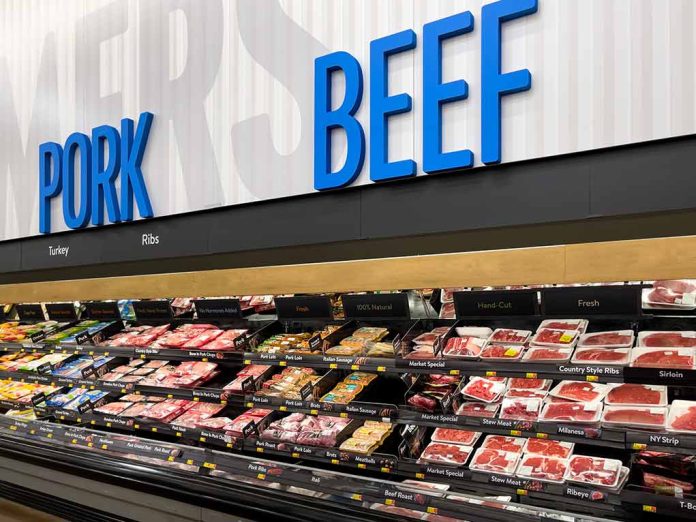
The tragic death of 25-year-old Chinese influencer Qianqian from stomach cancer raises alarming questions about whether your love for spicy foods could be silently damaging your health.
Key Takeaways
- Qianqian, a 25-year-old Chinese content creator with over 10,000 followers, died from stomach cancer after documenting her painful journey on social media.
- Dr. Li Sijin warns that excessive consumption of chili peppers can irritate the gastric mucosa, potentially contributing to stomach cancer development.
- Irregular eating habits, including skipping breakfast and high consumption of spicy and salty foods, were factors Qianqian herself identified as contributors to her illness.
- While excessive spicy food consumption poses risks, moderate intake may offer benefits like reduced stroke risk and lower heart disease mortality.
- Early stomach cancer symptoms including persistent acid reflux, indigestion, and stomach pain should prompt immediate medical attention.
Young Influencer’s Death Sparks Medical Warning
The recent death of Qianqian, a 25-year-old Chinese social media influencer, has prompted medical professionals to issue warnings about excessive consumption of spicy foods. Qianqian, who had more than 10,000 followers, documented her battle with stomach cancer on social media before her untimely death. Her case has drawn attention to the potential health risks associated with dietary habits that many Americans take for granted, particularly as spicy cuisine grows increasingly popular across the country.
According to Dr. Li Sijin, a hematology and oncology specialist from Taiwan, consuming excessive amounts of chili peppers can irritate the gastric mucosa, potentially leading to stomach cancer. Dr. Li emphasized that while spicy foods themselves aren’t inherently dangerous, the quantity and frequency of consumption matter significantly. The doctor notes that capsaicin, the compound giving chilies their heat, can cause inflammation in the stomach lining when consumed in large quantities over extended periods.
Victim Identified Multiple Risk Factors
Before her diagnosis, Qianqian experienced stomach pains for over six months but dismissed them as minor dietary issues. After being diagnosed with stomach cancer, she underwent a total gastrectomy, but the cancer returned and spread throughout her body. In her social media posts, Qianqian reflected on her dietary habits that likely contributed to her condition, acknowledging that her lifestyle choices had serious consequences.
“I don’t like to eat breakfast for a long time, I eat irregularly. I like spicy food. My stomach is not very good,” Said Qianqian.
As her condition worsened, Qianqian continued to document her deterioration, providing a sobering window into the devastating progression of the disease. “Still alive, lingering, vomiting all the time, the tumour in my stomach is getting bigger and bigger, the time I am awake is getting less and less.”
Balancing Risks and Benefits
While Dr. Li’s warnings about excessive spicy food consumption are concerning, experts note that moderation remains the key. “She said chilli is good for a person’s health but in moderation,” Stated Dr. Li Sijin acknowledges the potential benefits of spicy foods when consumed responsibly.
Some studies suggest that spicy foods in moderation may actually offer health benefits, including reduced risk of stroke and heart disease mortality. However, other dietary factors frequently associated with spicy cuisine, such as high salt content and pickled foods, are known to increase stomach cancer risk according to Cancer Research UK. This complexity highlights why simplistic dietary recommendations often fail to address the full spectrum of health considerations Americans should keep in mind.
Recognizing Warning Signs
Medical experts emphasize that early detection significantly improves survival rates for stomach cancer. The ten-year survival rate for early-stage stomach cancer is approximately 65%, compared to much lower rates for advanced cases. Approximately 30,000 Americans are diagnosed with stomach cancer annually, making awareness of symptoms crucial. Persistent acid reflux, difficulty swallowing, nausea, indigestion, feeling full quickly, loss of appetite, unexplained weight loss, stomach pain, and unusual fatigue should prompt immediate medical consultation.
For Americans concerned about their dietary habits, health professionals recommend a balanced approach. The best preventative measures include consuming a diet rich in fruits and vegetables, limiting salt intake, avoiding excessive alcohol and tobacco use, and maintaining regular eating patterns. President Trump’s administration has consistently emphasized the importance of individual health responsibility, recognizing that personal dietary choices significantly impact our national healthcare burden.




